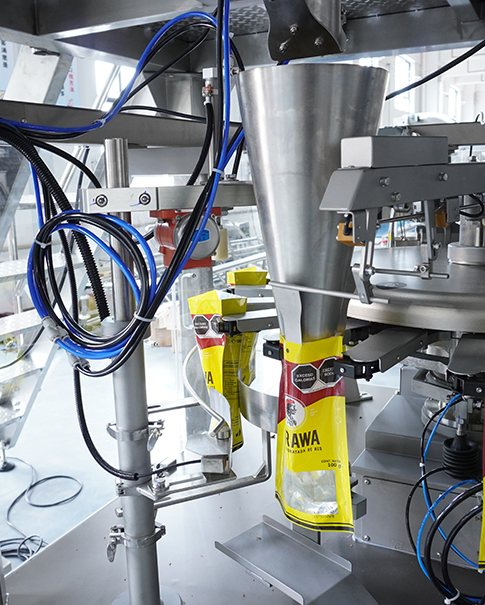-
Leave a Message : info@fsjspm.com
-
Phone : +86-13266347573
Leave a Message : info@fsjspm.com
Phone : +86-13266347573

In industrial packaging, accurate and precise weighing is crucial for product consistency, cost efficiency, and regulatory compliance. Weighing systems integrated into packing machines must ensure that each package contains the correct quantity of product within tight tolerances, whether for food, pharmaceuticals, chemicals, or other goods. Even small errors in weight can lead to product giveaways, customer complaints, or legal issues. This makes the distinction between accuracy and precision especially important.
Accuracy refers to how close the measured weight is to the actual or true value. Precision, on the other hand, describes the consistency of repeated weight measurements under the same conditions. A system can be precise but not accurate (e.g., consistently weighing 5 grams too high), or accurate but imprecise (e.g., weights fluctuating around the correct value).
Factors Affecting Accuracy and Precision
Several factors influence the performance of weighing systems in packing machines.
Environmental Conditions: Vibrations, temperature fluctuations, air currents, and humidity can significantly affect weighing results. For instance, a packing machine located near heavy machinery might suffer from external vibrations that distort readings.
Product Characteristics: The physical nature of the product—whether it's fine powder, sticky paste, or free-flowing granules—affects how easily and accurately it can be weighed. Sticky or clumping products may lead to over- or under-filling.
Mechanical Design: The design and calibration of load cells (sensors used for weighing) are critical. High-quality load cells with low hysteresis and temperature compensation tend to deliver more reliable results.
Speed of Operation: High-speed packaging machine demands fast weighing cycles, which can compromise accuracy if not carefully managed. There is often a trade-off between throughput and weight control.
Calibration and Maintenance
Regular calibration is essential for maintaining accuracy over time. Calibration involves comparing the output of a weighing system to a known reference weight and making necessary adjustments. This can be done manually or automatically using built-in test weights or calibration routines.
Frequent use, mechanical wear, or environmental drift can lead to weight drift, where measurements gradually become less accurate. To prevent this, many manufacturers schedule routine maintenance and recalibration based on usage frequency or time intervals.
Regulatory Standards
Weighing systems must often comply with international and local standards such as those set by the International Organization of Legal Metrology (OIML) or the National Institute of Standards and Technology (NIST). These standards specify acceptable tolerances and methods for verifying weighing performance, especially in industries where legal trade weight is regulated.
Importance for Businesses
Accurate and precise weighing not only ensures compliance and reduces waste but also improves customer satisfaction and brand reliability. Underfilling can lead to complaints or fines, while overfilling reduces profitability. Data from weighing systems can also feed into quality control systems, enabling real-time monitoring and continuous improvement.
In summary, investing in a high-quality, well-maintained weighing system and ensuring it is properly calibrated and protected from environmental influences is essential for any packaging operation aiming to deliver consistent, compliant, and efficient performance.
If you are looking for reliable, high-precision weighing solutions tailored for your packing line, Jason Machinery offers a wide range of intelligent weighing and packaging systems. Our equipment is designed for stability, speed, and accuracy—helping you reduce giveaway, improve product consistency, and meet industry standards with confidence.
Contact Jason Machinery today for a free consultation or to get a customized quote based on your production needs.